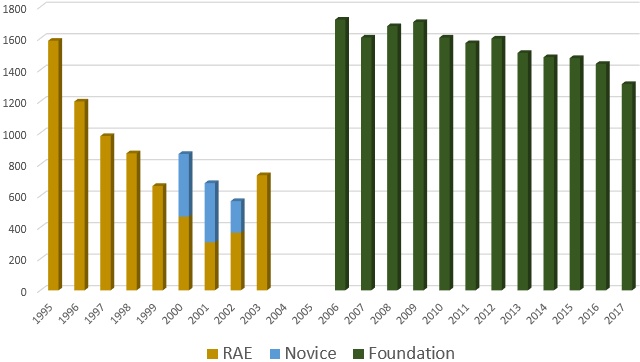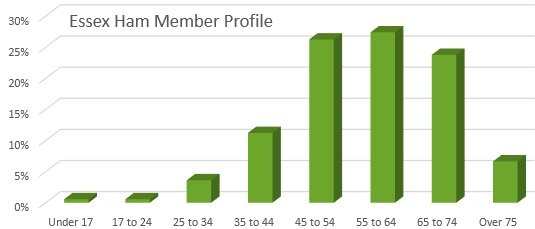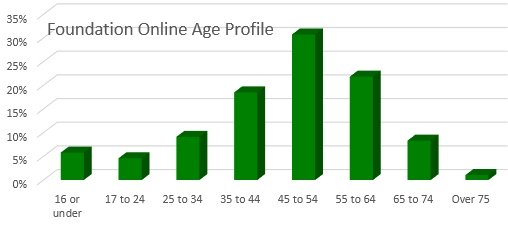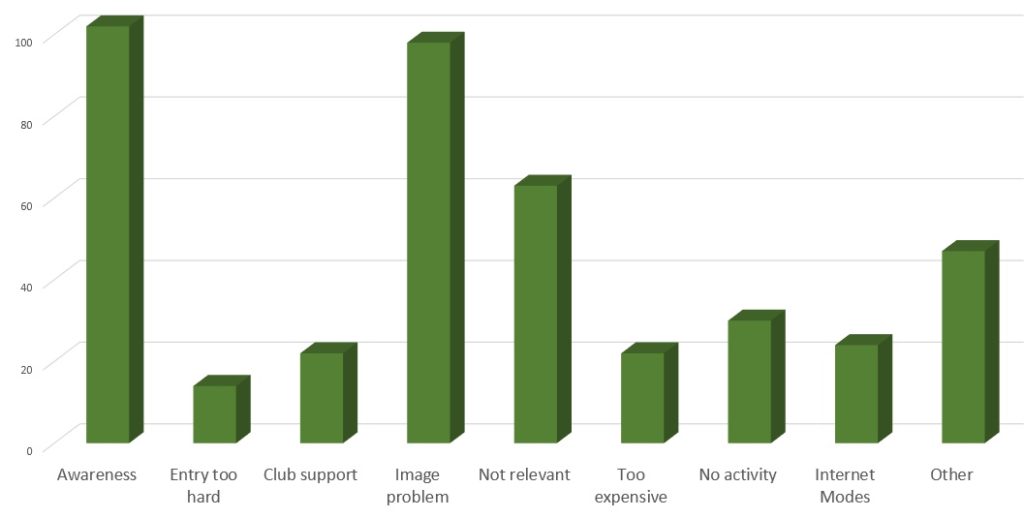We’ve recently been contacted by Peter LB0K, an ex-pat now in Norway, who’s a member of the amateur radio club Bergensgruppen (of) NRRL. In Norway, they have a one-tier licence system (which is the CEPT equivalent of a UK Full) , and to get a licence, candidates need to pass a single 35-question multiple choice exam (two questions can be crossed out), with no practical sessions. They do not have the equivalent of the UK’s entry-level Foundation exam.
As Peter’s enquiry raises some interesting questions, with his permission I’ve shared his question, and our answer, in case the information is of use to anyone else.
“I’m enquiring as to how the UK Foundation license has improved the numbers entering amateur radio in the UK and I wonder if there is someone in your club who could answer a few questions for me and my colleagues? I’ve chosen your club for these questions as one of those listed in the ‘Club of the Year’ page on RSGB.org. Congratulations, a recognition and small reward for all of your hard work.
- How much/What does the Foundation license mean for recruiting?
- Have you seen a change in the age demographic of your club with the starter license. hopefully a move towards more younger members?”
Peter Ebsworth – LB0K ( club site – www.la1b.no)
Foreningen Bergen Kringkaster / Bergen Broadcaster Assoc.
LA1ASK (www.bergenkringkaster.no)Askøy, Norway.
Here’s some data that made up part of our response:
The Impact of Foundation
Numbers of people entering the hobby had been in decline throughout the 80s and 90s, dropping from 8,400 passing the RAE in 1982, to just 305 in 2001. An easier entry-level ‘Novice’ licence was introduced in 1991, but we don’t have the data to show what impact this had. The stats for 2001 showed 376 people passing the Novice. The new entry-level “Foundation” exam started in 2002. We don’t have data on how successful that was, but the following graph shows the increase in newcomers between 2001 and 2006:

When it launched in 2002, the Foundation course was a short, basic entry level course that could be taught over a weekend. This was a mix of practical assessments, plus a 20-question multiple choice exam (see sample paper on G1IZH’s site). This was subsequently increased to 26 questions before 2010. Foundation is set to become more difficult from September 2019 (See: Syllabus 2019 changes)
Amateur Radio Age Profile
It’s generally accepted that amateur radio is struggling to get youngsters. Amateur radio is not as exciting to kids as smartphones and tablets, and there are likely to be numerous other reasons why it is tricky getting interest from the under 25s, including: cost of entry, lack of other youngsters, lack of perceived value, too many other things going on (exams, work, relationships).
To answer Peter’s question – We don’t have any data about how the introduction of Foundation increased young entrants. We can however help with some other demographic information, including information on the age of our members, and the age of those taking our Foundation Online (distance-learning) training course.


Amateur Radio Challenges
In a follow-up email, Peter also outlines that amateurs in Norway are suffering from the same frustrations as clubs in the UK, namely: engaging with youngsters, the age profile of amateurs, keeping newcomers interested and issues with getting amateur radio in schools.
One of the key questions in our 2019 Amateur Radio Survey asked “What do you feel is the biggest challenge regarding the growth of the hobby?”

Top responses were that “Not enough people know about it” (24%), followed by “Amateur radio has an image problem” (23%).
Hopefully, the above data has been useful. Comments appreciated below.

